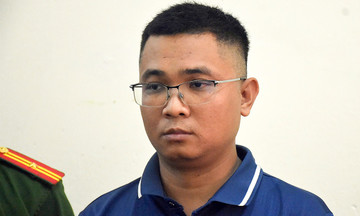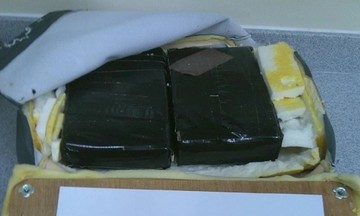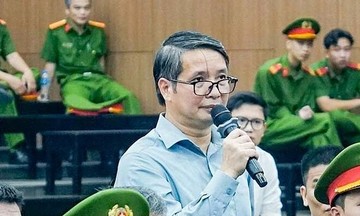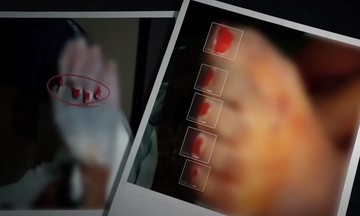Approved in 2003 by the Hai Phong People's Committee, the Anh Dung IV residential project in Hung Dao ward, developed by Thuy Nguyen Trading JSC, was once envisioned as a vibrant community. Today, however, it remains a mix of unfinished houses, vacant lots, and occupied homes lacking proper ownership documentation.
Between 2003 and 2008, numerous buyers, including Vinh, signed "Agreements for the Sale of Future Housing." "We paid in full, had notarized agreements, paid taxes, built houses, and have lived here ever since," Vinh explained. "Yet, the developer used the land as collateral. We paid real money but now have to beg for our rights, like beggars on our own land."
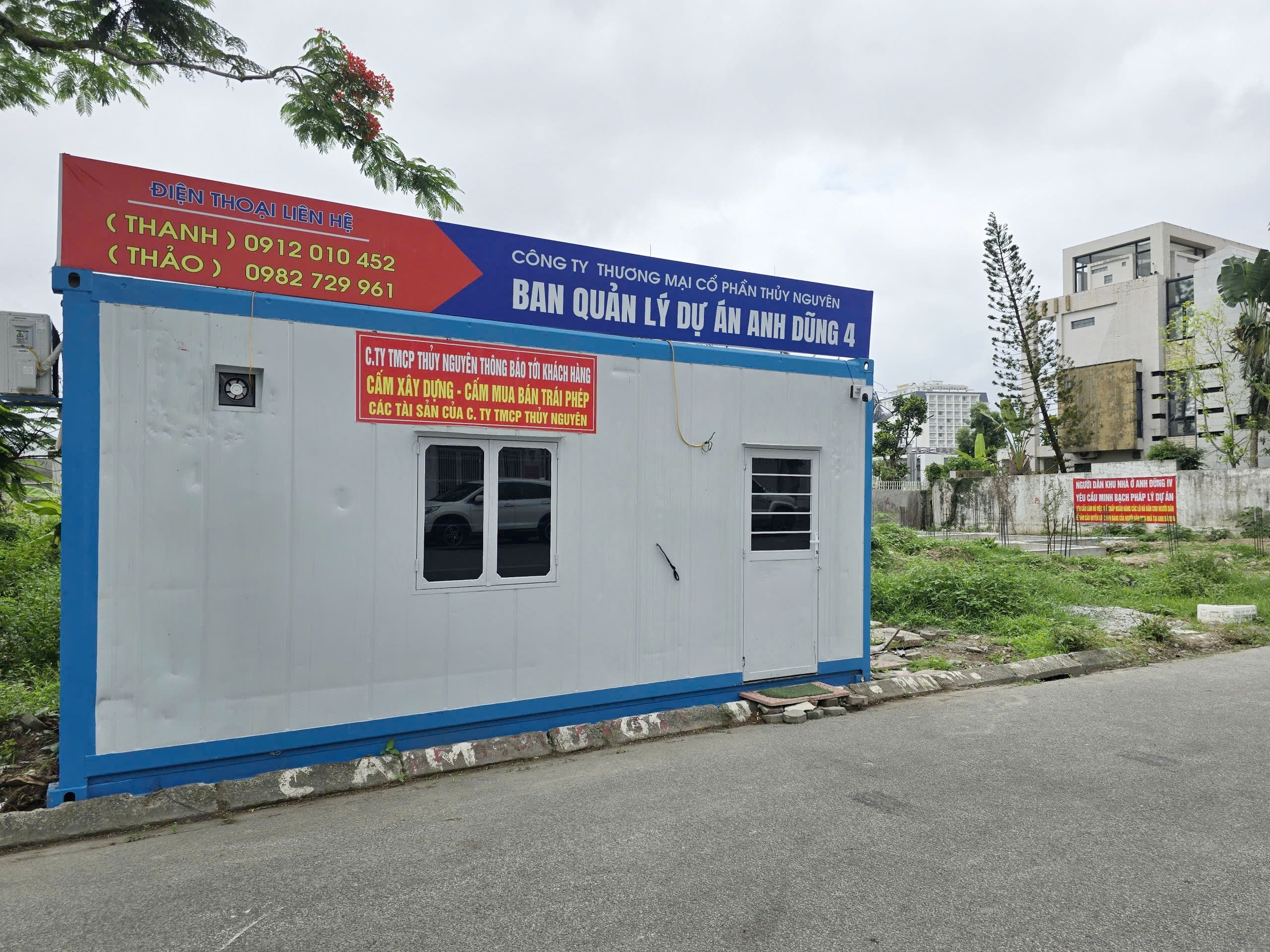 |
The developer issued a notice requesting residents to refrain from buying, selling, or constructing on the land plots. Photo: Tung Lam |
The developer issued a notice requesting residents to refrain from buying, selling, or constructing on the land plots. Photo: Tung Lam
After years of fruitless discussions with the developer, Vinh contacted the Hai Phong Department of Natural Resources and Environment in July/2025 to inquire about her property. She discovered a deed had been issued long ago, but it was in the company's name and used as collateral for a bank loan. "The deed also lists the area as 190 m2, while I purchased 380 m2," she said.
Believing she had been defrauded, Vinh filed a complaint with the Hai Phong Police Department. "My sister and nephew also bought land here and are facing similar legal issues. My nephew hasn't even been allowed to build a house," she added.
Vu Duc Thang, another resident of Anh Dung IV, purchased his land from a third party (F0). According to the transfer documents, the 477 million VND F0 paid in 2005 established legal financial obligations and property rights associated with the plot. However, in 2020, the Land Registration Office issued a deed in the company's name, effectively "erasing the rights of the residents." "Houses have been built, people are living here, yet it's treated as vacant land. This can't be a mistake," Thang emphasized in his petition to the Hai Phong Police Department.
According to the Hai Phong Police Department, Tran Huy Cuong, former director and legal representative of Thuy Nguyen Trading JSC, used 205 property deeds from the Anh Dung IV project as collateral to secure loans totaling 910 billion VND from various banks.
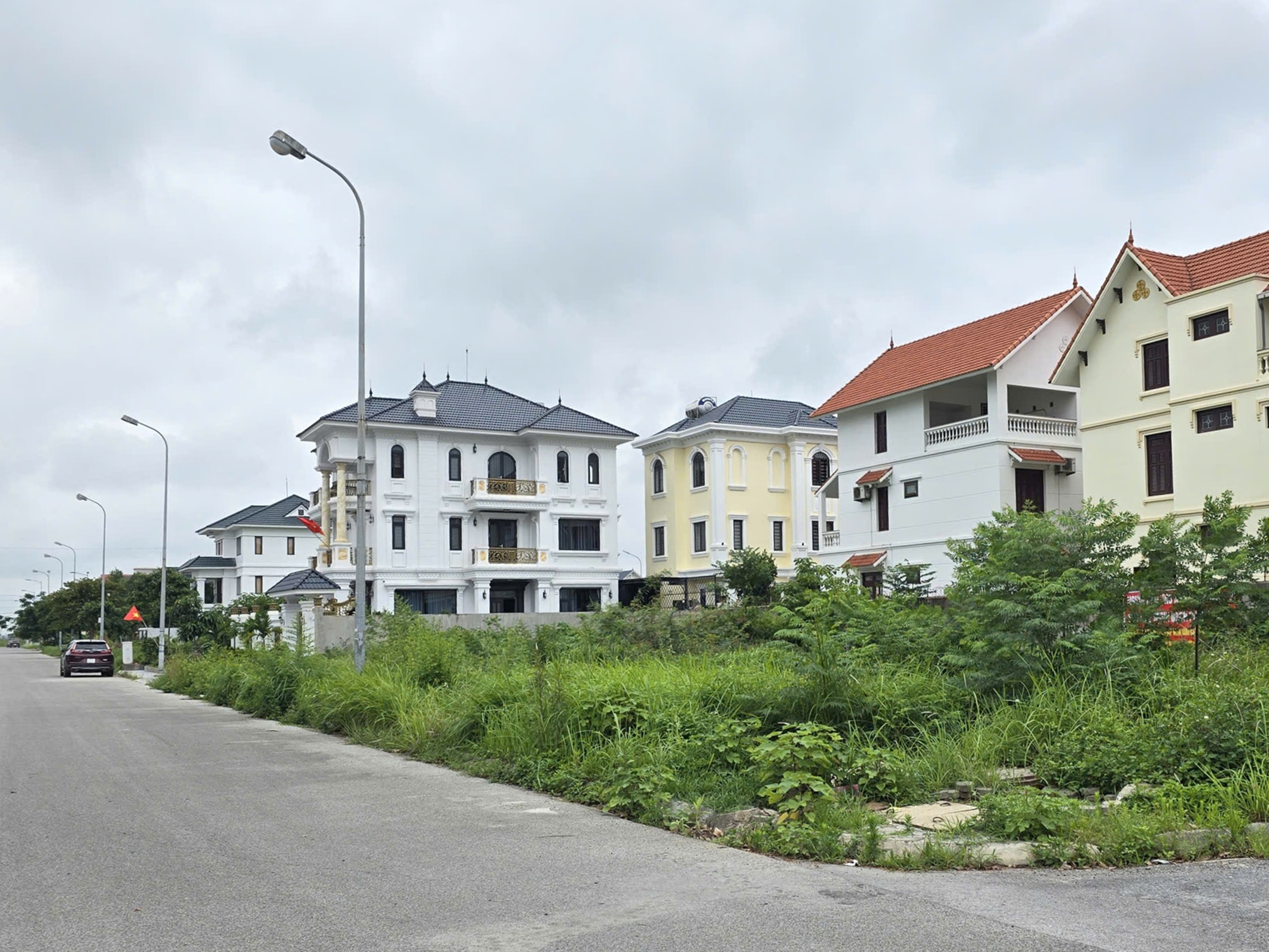 |
Overgrown vacant lots sit alongside houses without deeds, despite residents having fully paid for their properties. Photo: Tung Lam |
Overgrown vacant lots sit alongside houses without deeds, despite residents having fully paid for their properties. Photo: Tung Lam
In July, the Hai Phong Police Department's investigative agency initiated legal proceedings and detained Cuong on charges of fraud and property appropriation. Specific details of the wrongdoing have yet to be released.
While residents support the authorities' intervention, many believe the wrongdoing extends beyond a single individual. They urge investigators to examine whether the banks and notaries involved conducted proper due diligence, including site visits and checks for disputes, before approving loans or simply relied on paperwork. "Were there signs of complicity or legitimization of property appropriation?" Thang questioned in his petition.
Records indicate the city authorized the developer to construct houses for sale to organizations and individuals. While some buyers who constructed houses and fulfilled the developer's financial requirements received deeds, those who paid but hadn't built or finalized paperwork remain without deeds or registered ownership.
Trinh Thi Duong, Director of Atlantic Vietnam Law Firm, argues that the developer's use of company-named deeds for properties already sold as collateral for bank loans is illegal. "Legally, a developer can only use land-use rights as collateral if they haven't already sold the property," she stated, adding that the fraud charges against the former director under Article 174 of the Criminal Code are justified.
Beyond the director's indictment, Duong highlights three key issues: whether the banks were aware of prior sales agreements for the properties used as collateral; whether the developer improperly obtained deeds for vacant and pre-sold lots, possibly circumventing regulations requiring completed construction before deed issuance; and the civil dispute arising between the developer, banks, and residents within the criminal case. While the investigative agency can address the civil aspects, if compensation issues require further investigation and don't impact the criminal proceedings, they can be separated and handled through civil litigation.
Banks can file civil lawsuits to validate the collateral agreements, while residents can file separate suits to affirm their purchase agreements with the developer or include this as a counterclaim in bank-initiated lawsuits if they are recognized as involved parties. Court decisions will be based on the evidence presented.
To protect their rights, residents should provide all relevant information and documents to the police and assert their status as victims under the law, advises Duong.
The Hai Phong Police Department urges anyone affected by this case to contact the Office of the Investigative Police Agency at 4 Le Dai Hanh, Hong Bang ward, or by phone at 0692.785.462.
Tung Lam







